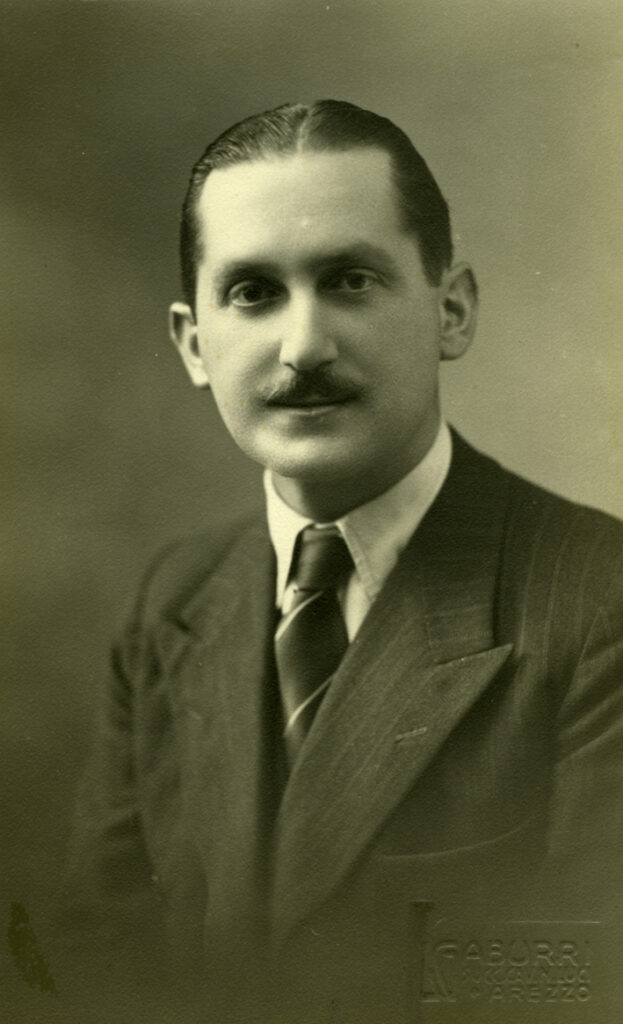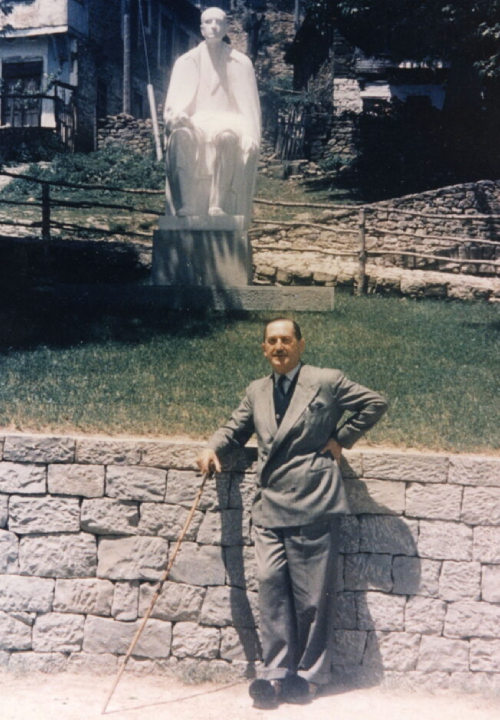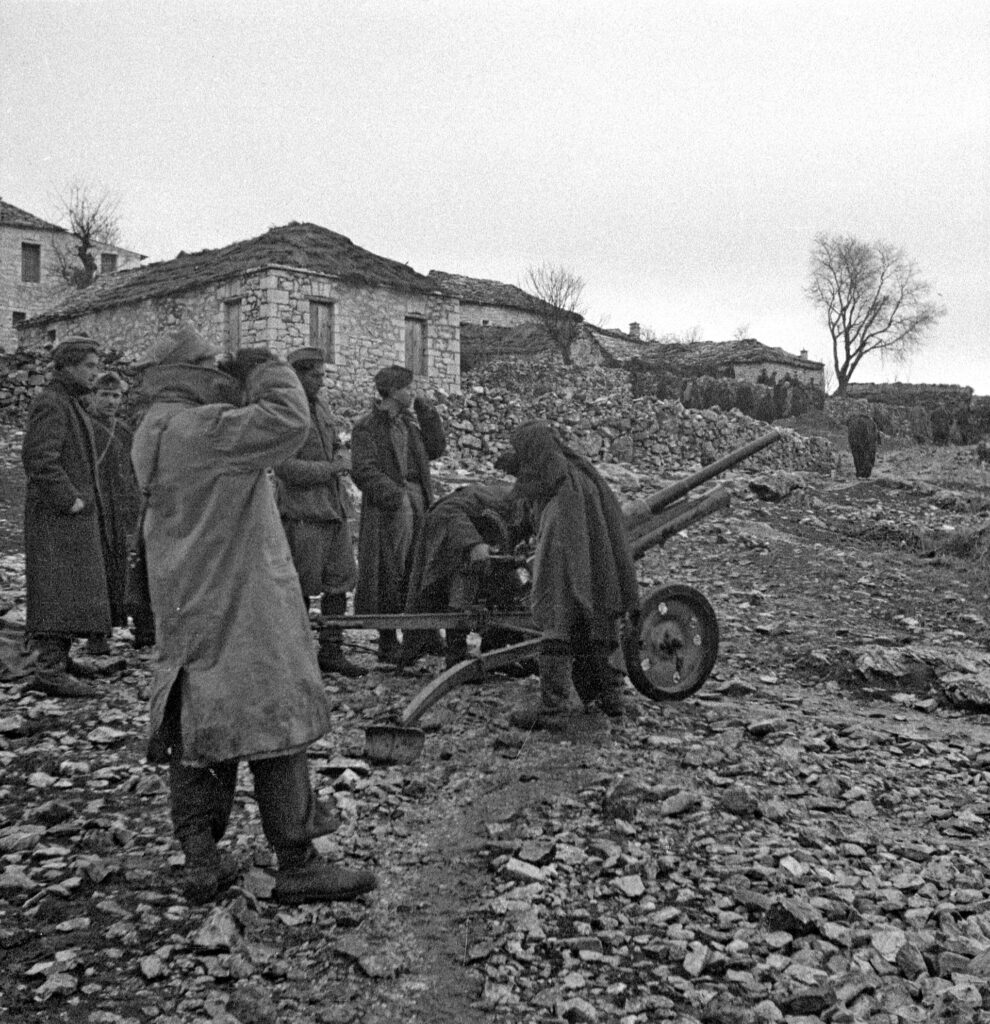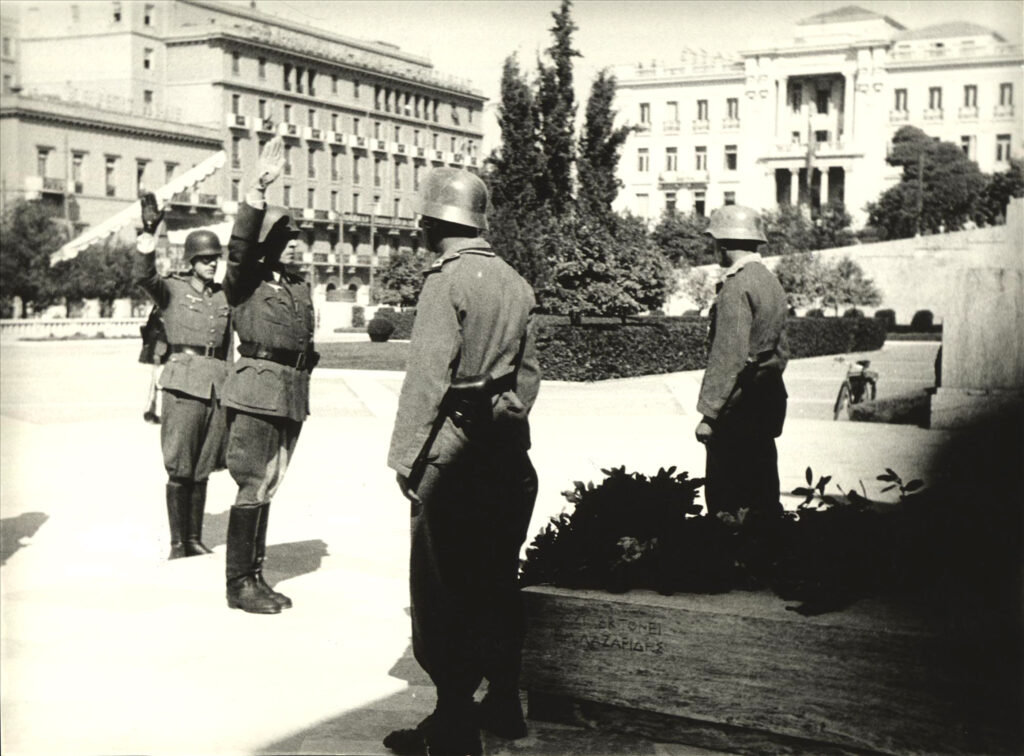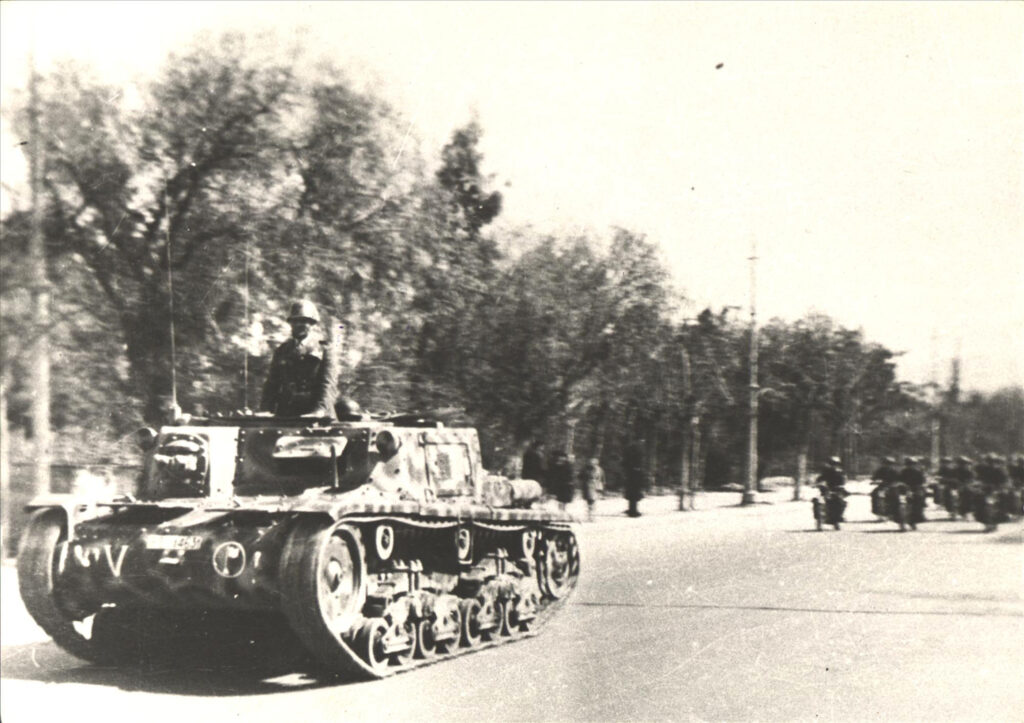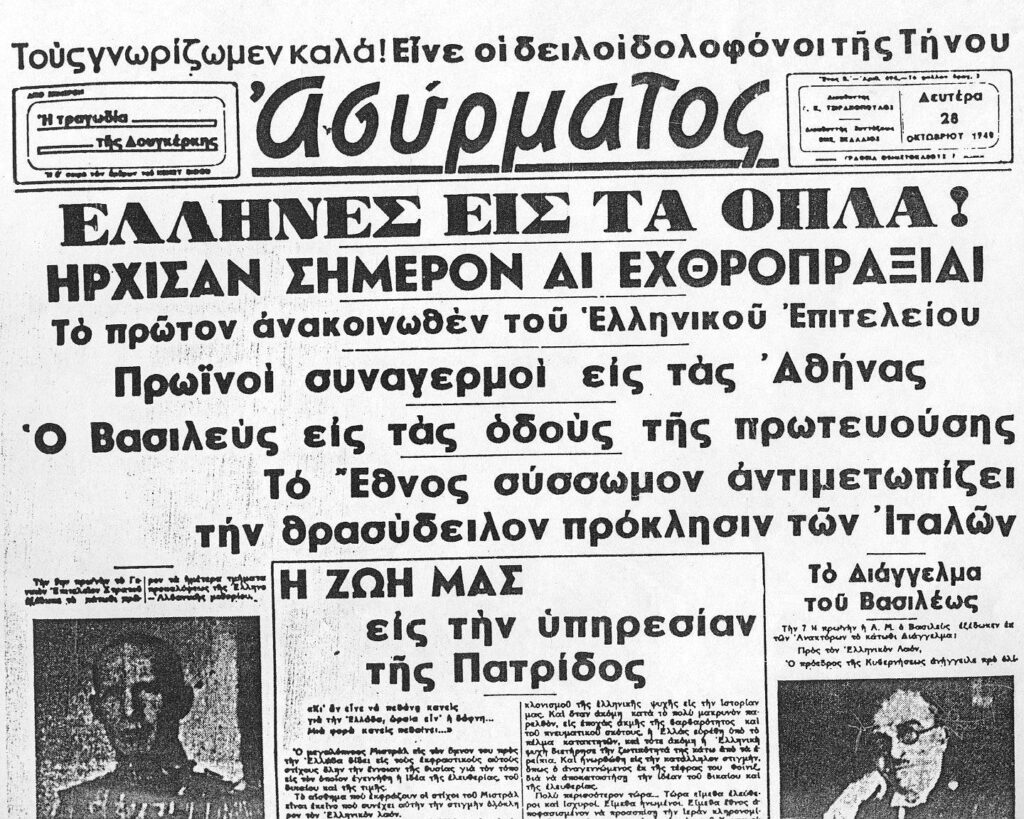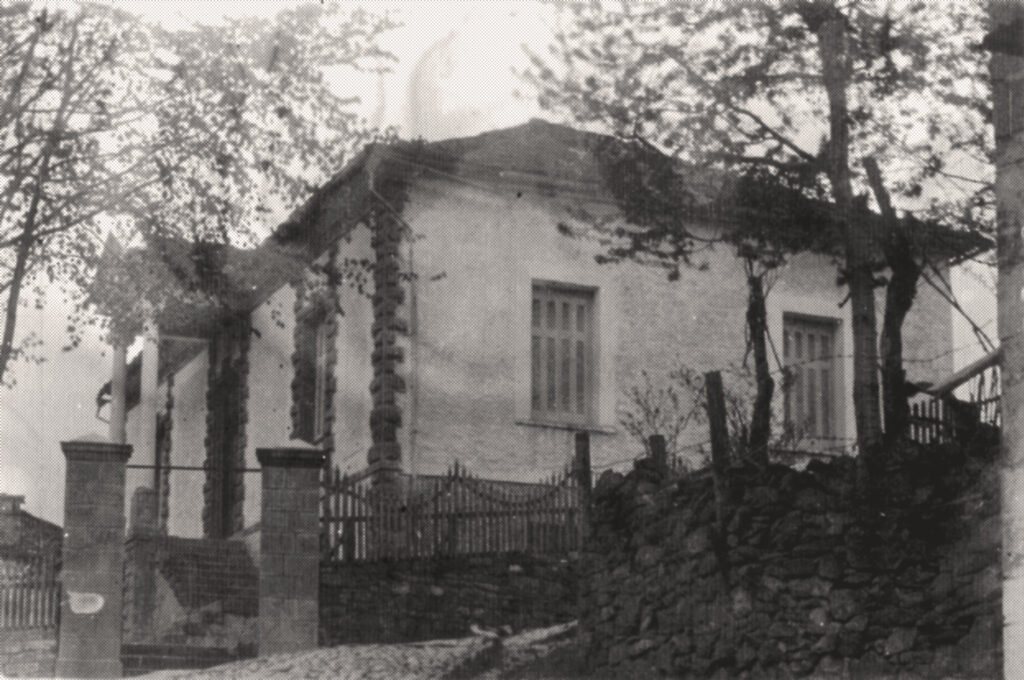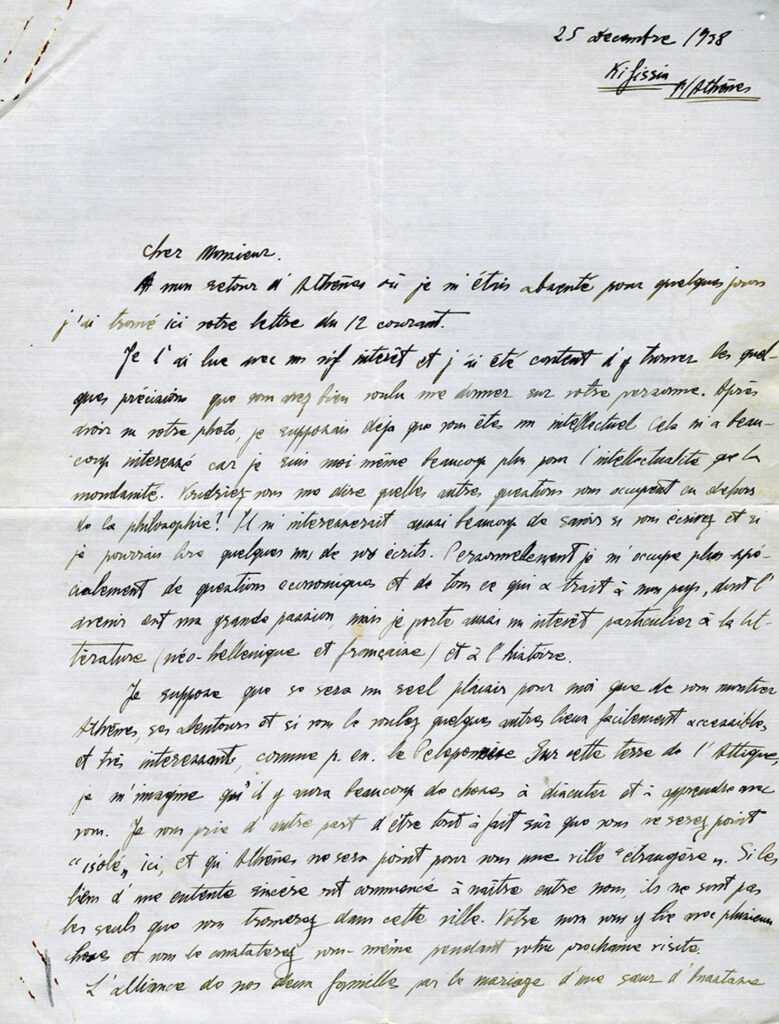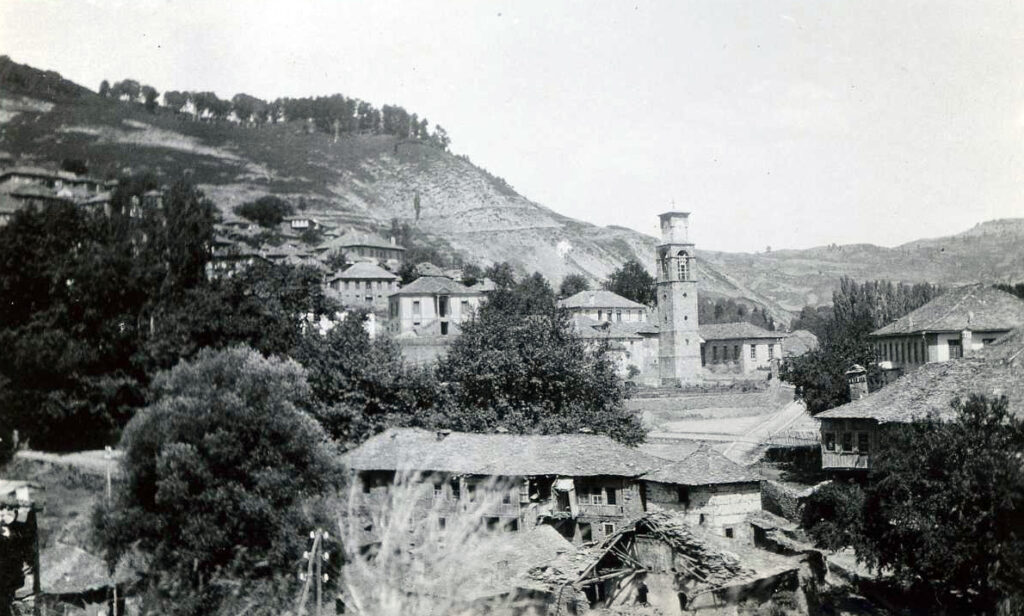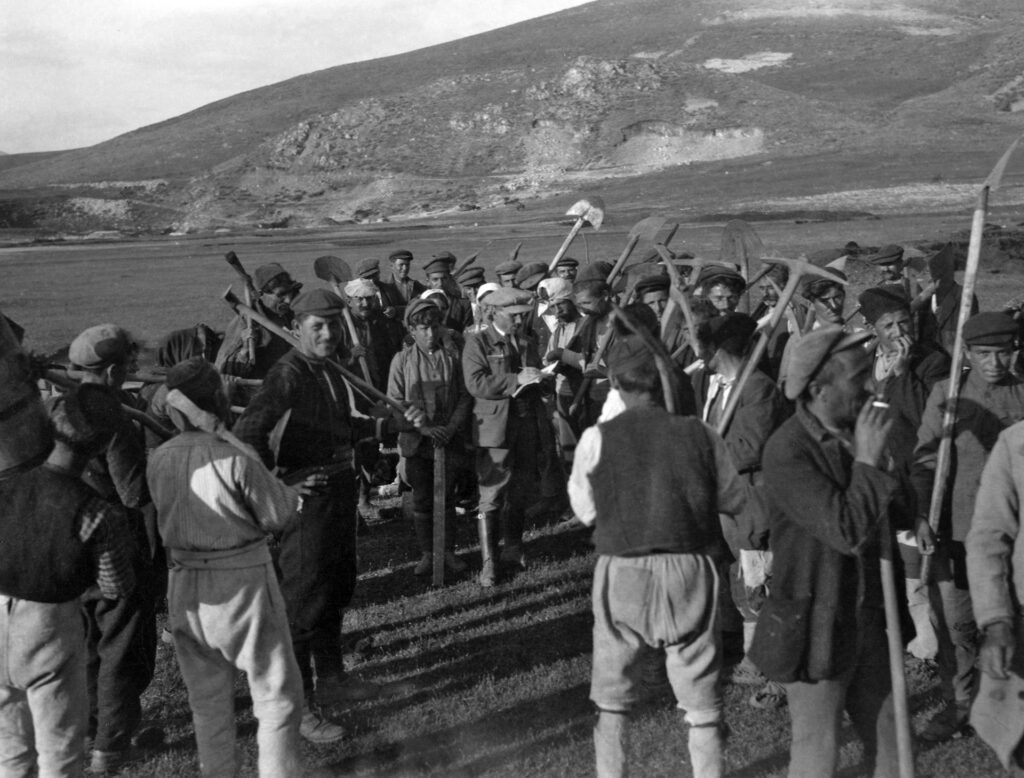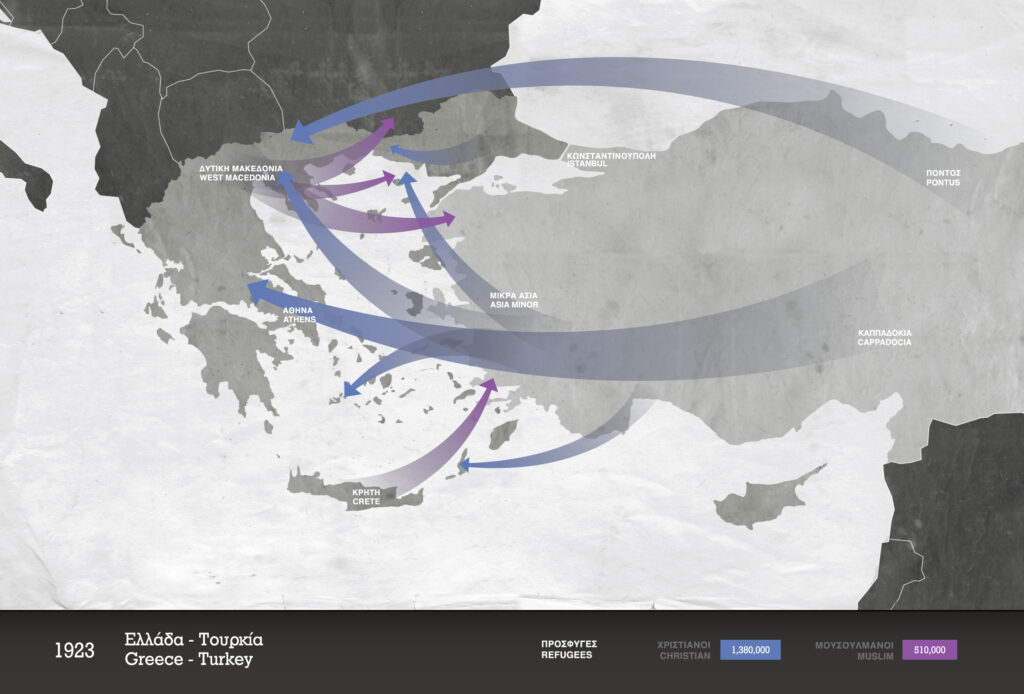In 1947 the Baron Michael Tossizza Foundation was founded.
Thanks to Evangelos Averoff’s guidance, the Foundation played a key role in Metsovo’s economic growth and revival.
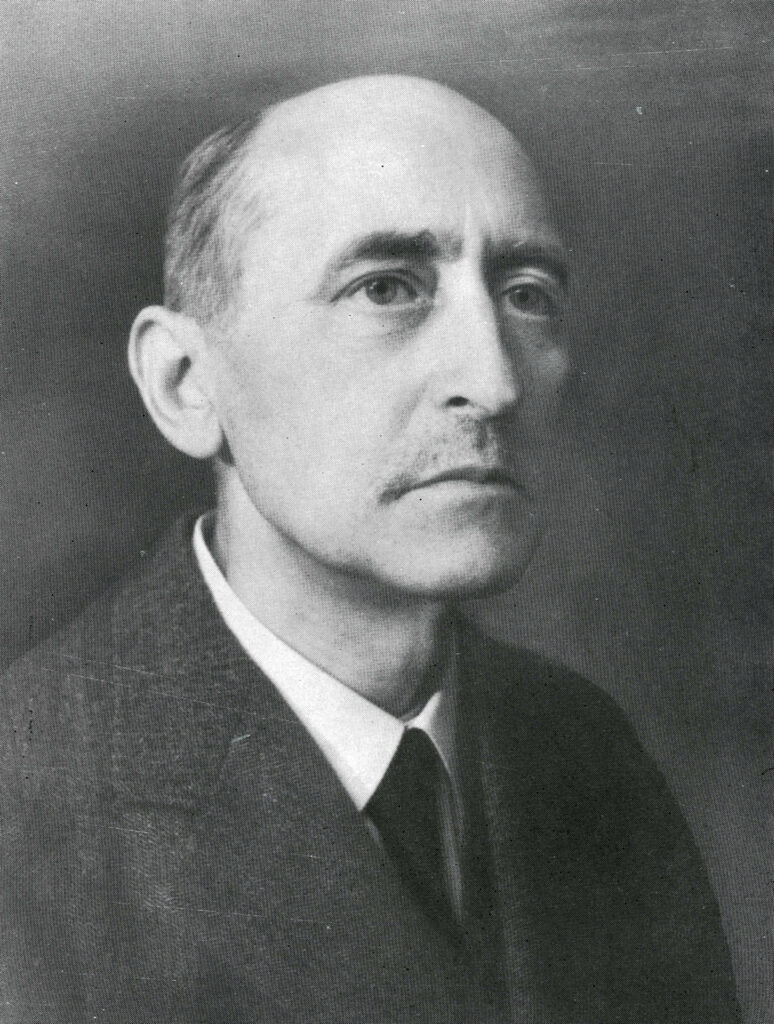
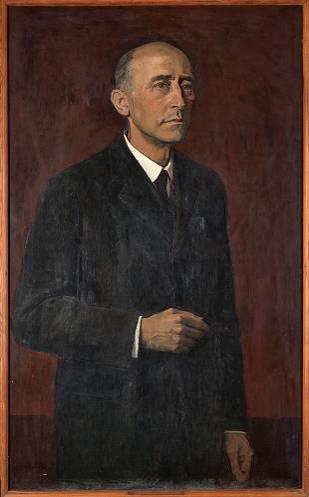
Baron Michael Tossizza in a painting by Yiannis Moralis
Baron Michael Tossizza (1885-1950) was the grandson of Konstantinos Tossizza, one of the youngest brothers of Greece’s national benefactor, Michael Tossizza (1787-1950), who had moved to Livorno, Italy, at the start of the 19th century. In 1831 the local duke awarded him the hereditary title of baron in recognition of the commercial activity of the Tossizza family.
Baron Michael Tossizza lived in Switzerland and France. Although he was not close to Greek life, he was persuaded, after the exchange of letters and communications with Evangelos Averoff, to found a charitable foundation to help the home of his ancestors. The foundation was established on June 1947 under the name of «Baron Michael Tossizza Foundation» and its main aim was the development of the wider area of Metsovo, from where its founder originated.
The foundation’s money was used to restore his family’s house in Metsovo (that still operates as a folk art museum) and the primary school building that had burnt down in 1947. It was also used for the creation of a hospital, a sawmill, a cheese-making plant, a gym, a ski centre, and various other social and development works. Over 107 schools were completed across the wider area of Epirus with funds provided by the foundations. Student accommodation was also built in Kato Kifisia to host students from Epirus.
Evangelos Averoff soon became involved in politics and for almost half a century he played a major role in Greek political life.
In 1941 he became Prefect of Corfu and in 1942 he was arrested by the Italians for his revolutionary activities. In 1946 he was elected member of parliament of Ioannina for the first time and then held the position of Deputy Minister and Minister of Supply, Finance and Agriculture. He was Minister of Foreign Affairs from 1956 to 1963.
During the military takeover he fought against the junta and was arrested. In 1974 he was assigned to the Ministry of Defence.
In addition to his political activity, he also wrote novels, stories, dramas, essays and historical analyses.
To Metsovo residents, Evangelos Averoff is the last representative of a long tradition of local benefactors. He led the initiative to create the Baron Michael Tossizza Foundation (which he managed for 40 years) that contributed greatly to the modern development of the settlement. It was at this point he also adopted the Tossizza name, in accordance with Baron Michael Tossizzas’ wish that all of the Foundation’s president bear his family name.
He also created the Evangelos Averoff- Tossizza Foundation, to which he donated his extremely valuable and important personal collection of Greek painters of the 19th and early 20th century, building a gallery to host them. At the same time, he invested in local wine making by cultivating the abandoned Metsovo vineyard and by creating a modern winemaking plant.
